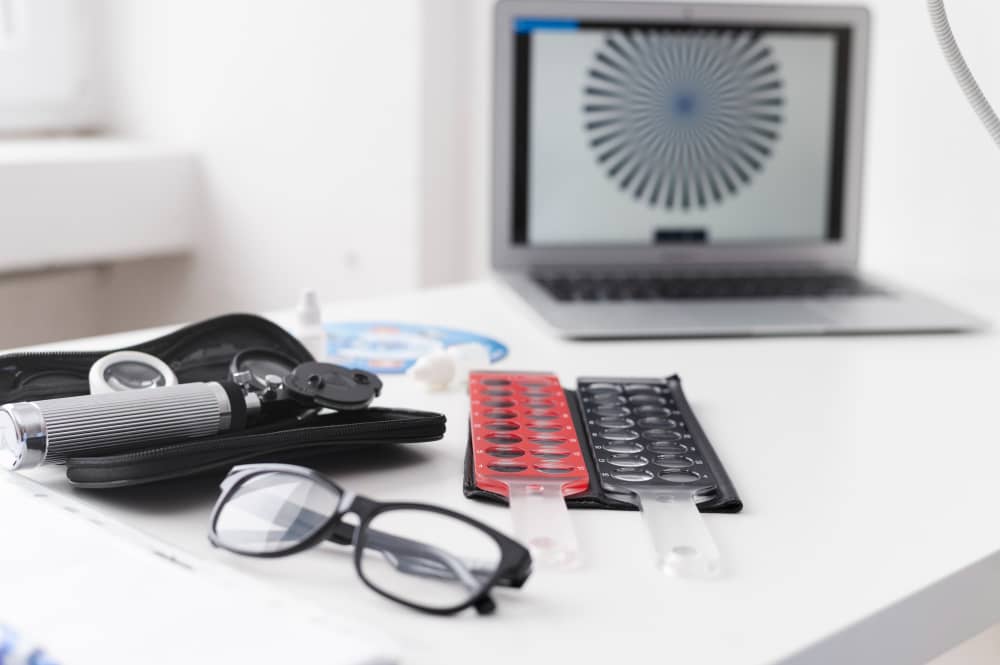Technological advancements are revolutionising healthcare, and ophthalmology is no exception. From AI-powered diagnostics to innovative surgical techniques, technology is playing a crucial role in reducing ophthalmology risks and improving patient outcomes. This article explores the various ways technology is transforming eye care, offering a vision of a future where preventable blindness is minimised, and treatments are more effective and less invasive.
Early Detection and Diagnosis
Early detection is key to preventing vision loss and effectively managing eye conditions. Technology is empowering ophthalmologists with tools for earlier and more accurate diagnoses.
AI-Powered Diagnostic Tools
Artificial intelligence (AI) is being integrated into diagnostic tools to analyse retinal images and detect subtle signs of diseases like diabetic retinopathy, glaucoma, and age-related macular degeneration (AMD) often before they are noticeable to the human eye. These AI algorithms can quickly analyse vast amounts of data, identifying patterns and anomalies that may indicate early-stage disease, enabling timely intervention and treatment.
Advanced Imaging Techniques
Optical coherence tomography (OCT) is a non-invasive imaging technique that provides detailed cross-sectional images of the retina, helping to identify abnormalities and track disease progression. OCT angiography (OCTA) takes this a step further by visualising blood flow in the retina, aiding in the diagnosis and management of conditions like diabetic retinopathy and macular degeneration.
Minimally Invasive Procedures
Technological advancements have led to the development of minimally invasive surgical techniques, reducing risks and improving patient recovery times.
Laser Surgery
Laser surgery has become a cornerstone of ophthalmology, used to treat various conditions, including cataracts, glaucoma, and diabetic retinopathy. Femtosecond lasers, known for their precision and speed, are used in cataract surgery to create precise incisions and soften the lens, reducing the need for ultrasound energy and minimising trauma to the eye.
Robotic Surgery
Robotic surgical systems are emerging as a game-changer in ophthalmology, offering unparalleled precision and stability during delicate procedures. In retinal surgery, robotic assistance allows surgeons to perform intricate maneuvers with greater accuracy, minimising the risk of complications and improving surgical outcomes.
Personalised Treatment and Monitoring
Technology is enabling more personalised approaches to eye care, tailoring treatments to individual patient needs and facilitating remote monitoring for timely intervention.
Gene Therapy
Gene therapy holds immense promise for treating inherited eye diseases. By introducing healthy genes into the eye, gene therapy aims to correct the underlying genetic defects that cause vision loss. While still in its early stages, gene therapy has shown encouraging results in clinical trials for conditions like Leber congenital amaurosis and retinitis pigmentosa.
Remote Patient Monitoring
Remote patient monitoring devices and telehealth platforms are transforming how eye care is delivered, particularly for patients in remote areas or with limited mobility. These technologies allow patients to monitor their eye health from home and share data with their ophthalmologist, enabling timely intervention and reducing the need for frequent clinic visits.
Enhanced Surgical Precision and Safety
Technology is enhancing surgical precision and safety in ophthalmology, minimising the risk of complications and improving patient outcomes.
Intraoperative OCT
Intraoperative OCT provides real-time, high-resolution images of the eye during surgery, guiding surgeons and improving the accuracy of procedures. This technology is particularly valuable in complex retinal surgeries, helping surgeons to precisely position surgical instruments and monitor tissue manipulation.
Augmented Reality (AR)
AR is being integrated into surgical microscopes, overlaying digital information onto the surgeon’s view of the eye. This technology can provide critical data, such as anatomical landmarks and surgical plans, enhancing surgical precision and reducing the risk of errors.
Making a Medical Negligence Claim with National Claims
At National Claims, we understand the devastating impact that medical negligence can have on your life and the lives of your loved ones. If you believe you or a family member has suffered harm due to substandard medical care, such as misdiagnosis, surgical errors, medication errors, or delayed treatment, we are here to help you by connecting you with a solicitor from our panel who will be able to assess your case.
Free Consultation
We recognise that every medical negligence case is unique, and we’re here to offer you a free, no-obligation consultation to discuss your specific situation. During this consultation, we’ll listen attentively to your experience, and assess the potential strength of your claim. Our team will then connect you with a qualified solicitor from our panel who specialises in medical negligence claims, ensuring that you receive the expert legal representation needed to pursue your case effectively.
*Customers pay up to 25% (incl. VAT) of the amount recovered towards solicitor costs and if you cancel outside your cooling off period, you may be charged a fee.
Contact us today to speak to one of our claims agents who will be able to help you get started on your claim.
Click below to see why we are one of the most trusted claims management companies in the UK.

We’re proud of our excellent customer reviews
We thrive on delivering exceptional service and ensuring our clients’ satisfaction. Don’t just take our word for it. Check out some of our independent reviews to see what our clients have to say.
Excellent

This firm is excellent, they sorted out my car pay out and injury claim very fast, they always communicate with you all the time.

My accident case was dealt with confidence and with great result of the outcome, especially James kept me informed all the time.

I was very impressed at the way my inquiry was treated. I was listened to attentively and everything I needed to know was explained to me.






